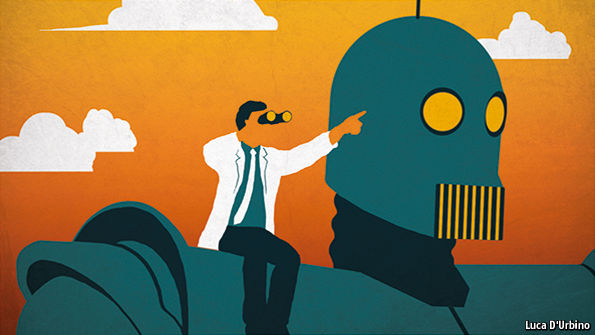Will artificial intelligence help to crack biology?

IN A former leatherworks just off Euston Road in London, a hopeful firm is starting up. BenevolentAI’s main room is large and open-plan. In it, scientists and coders sit busily on benches, plying their various trades. The firm’s star, though, has a private, temperature-controlled office. That star is a powerful computer that runs the software which sits at the heart of BenevolentAI’s business. This software is an artificial-intelligence system.
AI, as it is known for short, comes in several guises. But BenevolentAI’s version of it is a form of machine learning that can draw inferences about what it has learned. In particular, it can process natural language and formulate new ideas from what it reads. Its job is to sift through vast chemical libraries, medical databases and conventionally presented scientific papers, looking for potential drug molecules.
Nor is BenevolentAI a one-off. More and more people and firms believe that AI is well placed to help unpick biology and advance human health. Indeed, as Chris Bishop of Microsoft Research, in Cambridge, England, observes, one way of thinking about living organisms is to recognise…Continue reading
Source: Economist




